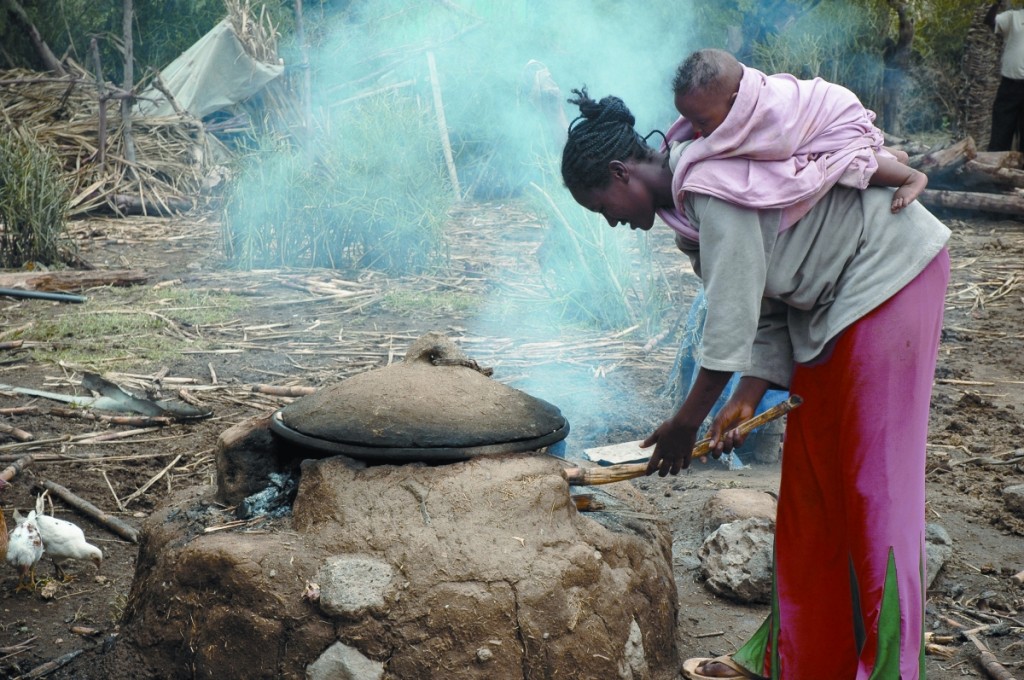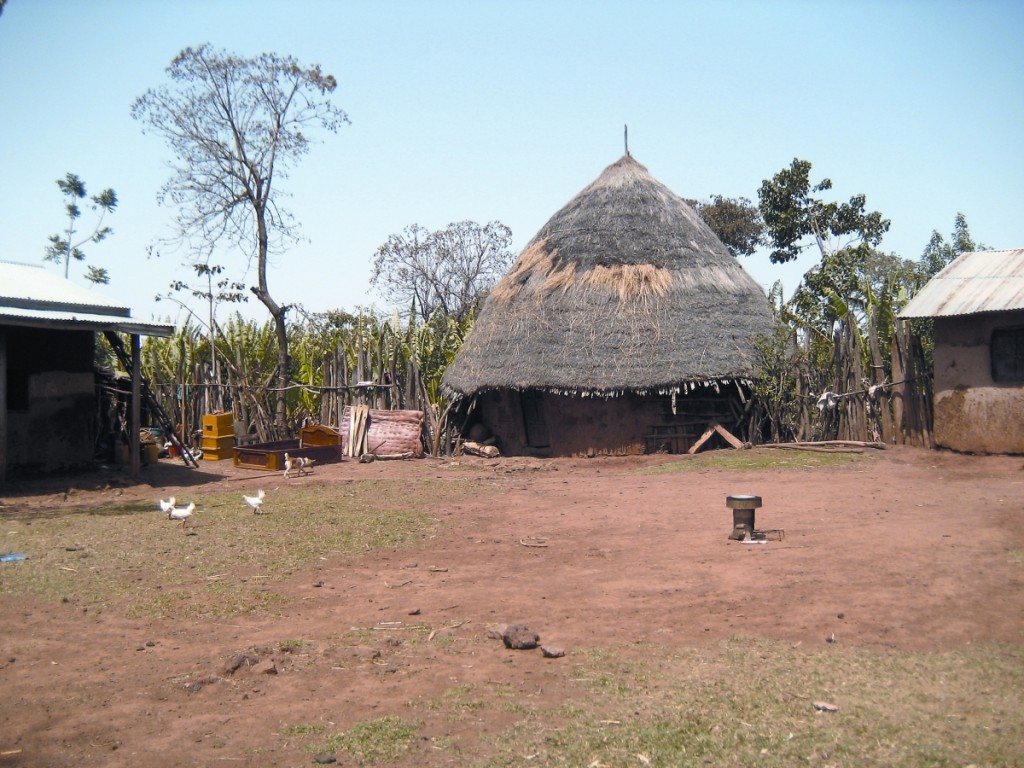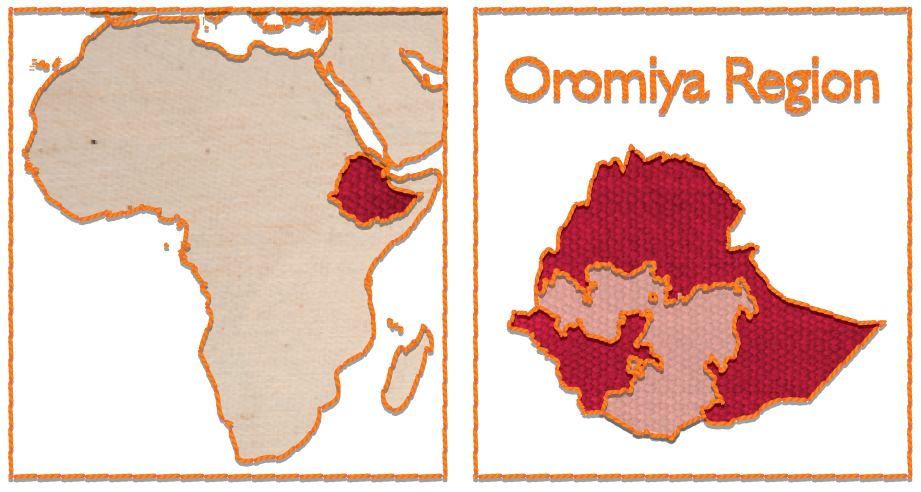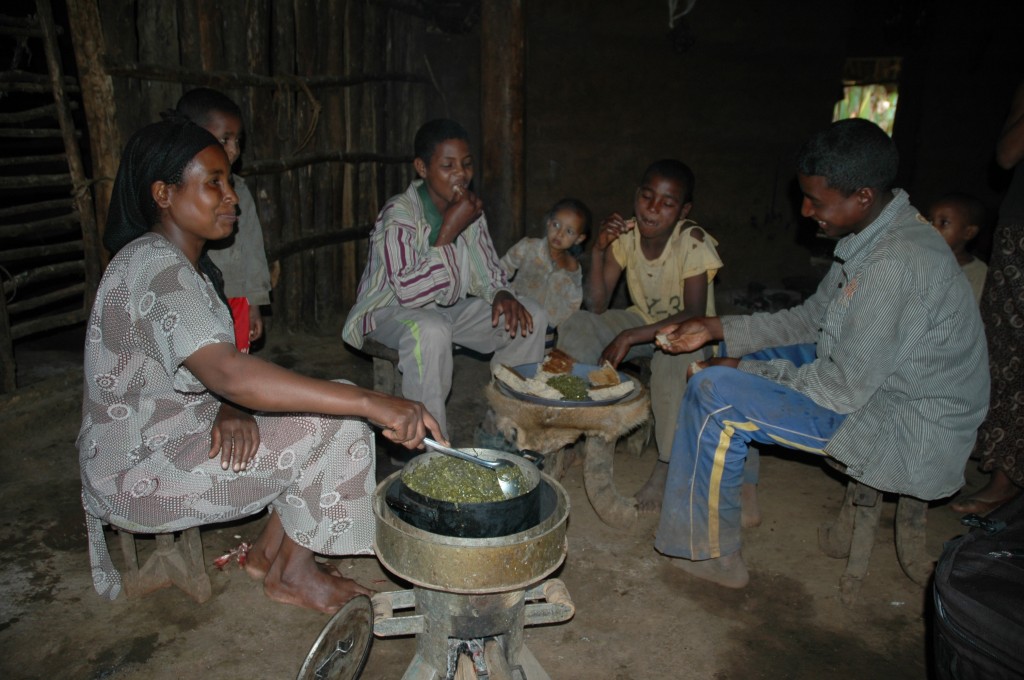A triple win for child health, development
and the environment
Setting the scene
Ethiopia is located in the Horn of Africa with a population estimated at more than 93 million. Wood is the most important energy source for household cooking, particularly in rural areas where alternative fuel sources are either unavailable or unaffordable. The vast majority of cooking is done using open fires, which are extremely inefficient. Accordingly, wood fuel resources are wasted and health problems associated with high indoor air pollution are common. The use of wood as the primary fuel source has also resulted in significant environmental degradation, leaving less than three percent of Ethiopia’s land covered by forest.
The Government of Ethiopia has highlighted a need for the distribution of nine million stoves across the country by 2015.
The development of compliance and voluntary carbon markets has enabled World Vision to expand its introduction of fuel-efficient wood burning stoves into Ethiopian communities, where the resulting Certified Emission Reduction units (CERs) can generate revenue for communities to build infrastructure and climate change adaptation capacity. In addition, social and community outcomes such as improved health and safety and labour saving benefits are being realised.
Project overview
This project aims to distribute 80,000 fuel-efficient stoves to rural households, to reduce inefficient consumption of wood, to limit environmental degradation, and to reduce health problems associated with present practices.
A successful pilot project has distributed 5,000 stoves to households in Ethiopia. The pilot adopted a market-based approach whereby stove units were sold through a community cooperative at a subsidised price. This model provided sustainable economic development in a variety of areas, while creating a sense of value and ownership in the stove units. The pilot project has enabled World Vision to:
- identify from both a community and a carbon market perspective the most appropriate stoves for large scale distribution;
- stimulate local production of stoves, with project partner GIZ overseeing quality control;
- prepare project design documents, including baseline analysis, for a large scale Program of Activity (PoA);
- identify and test appropriate project design, implementation and monitoring frameworks;
- develop a high quality project implementation team.
Project location: Oromiya Region, Ethiopia
Project partners:
- Government of Ethiopia
- World Vision Australia
- World Vision Ethiopia
- Standard Bank of Africa
Social impact:
- Health improvement
- Environmental improvement
- Socio-economic improvement
- Empowerment for women and local manufacturers
Climate change mitigation:
920,000tCO2e sequestered over ten years
Number of lives directly impacted (est): 280,000
The project is ready to scale up and undertake the distribution of a further 80,000 fuel-efficient stoves across three different regions.
The outcomes of the scaled up stoves project would include:
- distribution of 80,000 fuel-efficient stoves to Ethiopian households;
- generation of a forecasted 920,000 Gold Standard CERs over ten years (based on current conservative analysis of carbon savings (1.4 tCO2e per stove per year), through registration of the project with the Clean Development Mechanism (CDM) and Gold Standard Foundation.
- development of a PoA model that is replicable across multiple project sites in Ethiopia (World Vision works with over 60 communities in Ethiopia), enabling large scale implementation beyond 80,000 stoves;
- significant health, education, personal safety and environmental benefits for the communities in which the project operates.




